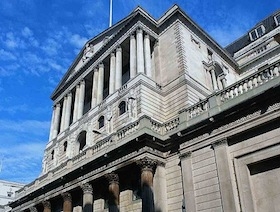
The Office for National Statistics reported that the UK the Consumer Prices Index (CPI) fell during December from 4.8% to 4.2%, a slightly bigger fall than expected by many experts.
Data provider Moneyfacts says that inflation remains relatively high and continues to make it difficult for savers to beat the rate of inflation when they deposit money.
Moneyfacts says to beat inflation, a basic rate taxpayer at 20 per cent needs to find a savings account paying 5.25 per cent per annum, while a higher rate taxpayer at 40 per cent needs to find an account paying at least 7.00 per cent. Today there just eight standard savings account that taxpayers can choose to negate the effects of tax and inflation and these are all fixed rate ISAs.
The effect of inflation on savings means that £10,000 invested five years ago, allowing for average interest and tax at 20 per cent, would have the spending power of just £9,213 today.
The ONS says that Retail Prices Index (RPI) inflation - which includes mortgage interest payments - fell from 5.2 per cent to 4.8 per cent. The decline in the CPI rate represented the biggest monthly drop since April 2009, and the lowest rate since June 2011. The ONS said it was due to lower fuel prices and cheaper clothing.
The figures included a 2.8 per cent drop in the price of clothing and footwear as retailers cut prices to lure customers in the pre-Christmas period.
However, food prices rose by 1.4 per cent, despite recent fierce competition between the main supermarket chains.
Experts believes there will be further falls in the rate of inflation during the course of 2012 with inflation falling back to about 3 per cent by spring and this may help economic growth as people's spending power improves and inflation fears subside. The Bank of England' expects inflation to drop below its 2 per cent target by the end of the year.

